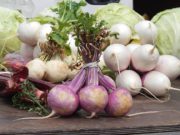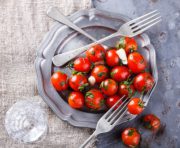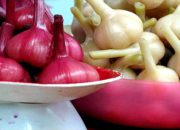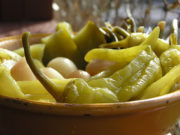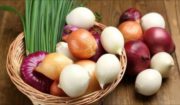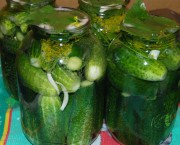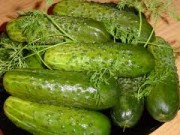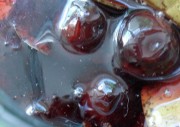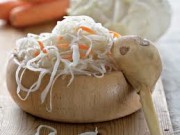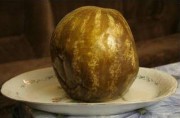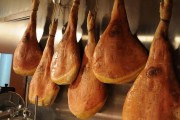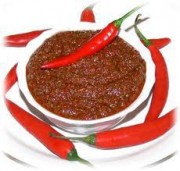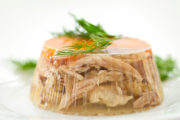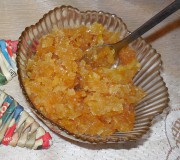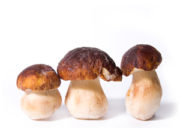Pickled turnips for the winter - healthy and tasty
Now they say that our ancestors were much healthier and physically stronger than the current generation. But the diet of our ancestors was not so varied, and it is unlikely that they knew about the benefits of this or that product, and counted vitamins with calories. But everyone knows that our ancestors ate vegetables, and there are countless fairy tales and sayings about turnips.
Nowadays, turnip dishes can only be found in very expensive restaurants. Despite the availability of this root vegetable, many housewives have no idea how to cook it. When you go to a Japanese restaurant and taste the traditional dish “Suguki”, you will be surprised to learn that this is an ordinary pickled turnip. And this turnip is very popular in Japan, as a huge number of beneficial properties of pickled turnips have been noted. It promotes immunity, protects against viral colds, and is very beneficial for men. Turnips have a general strengthening effect, and there are even cocktails made from pickled turnips. Of course, a pickled turnip cocktail is too much, but as a salad, turnips are incredibly good.
The recipe for pickled turnips is extremely simple, and even a novice housewife can prepare it for the winter.
For salads, turnips are usually fermented with carrots or apples. This is convenient, since then all you have to do is drain the brine and season the pickled turnip salad with vegetable oil.
- 1 kg turnip;
- 1 kg carrots/apples;
- 2 liters of water;
- 4 tbsp. salt.
Carrots and turnips are washed, peeled and cut into strips.
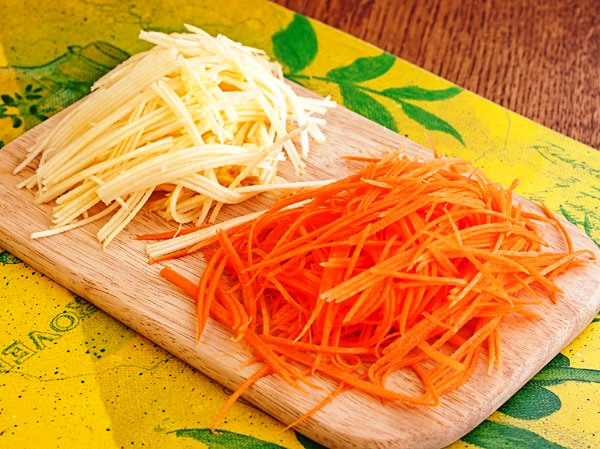
Then you should mix them with salt, put them in jars, compact them and fill them with cold water so that the water covers the chopped root vegetables.
Cover the jar with a lid and leave in a warm place for 5-7 days. That's it, the pickled turnips are ready.
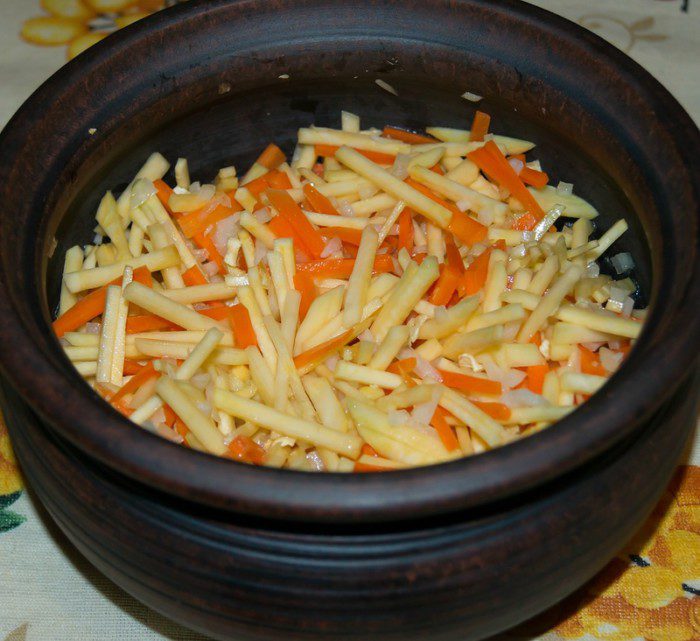
For meat dishes, soups, or stews, the recipe is exactly the same, except for the cutting method. For such cases, it is more convenient to cut the turnips into rings or cubes.
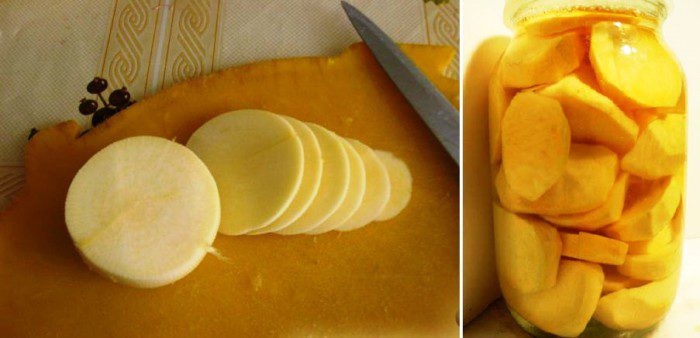
Pickled turnips have a pungent taste, like many other pickled vegetables. It can be enhanced and diversified by adding spices to the brine, such as garlic, paprika, cumin, or mustard seeds.
As for the starter container, it is best to avoid plastic buckets and metal pans. Of course, you won’t find wooden barrels now, but glass jars are quite suitable. They won't add a nice woody flavor, but at least the glass won't have an unnecessary acid reaction with the metal or plastic.
Watch the video on how to prepare pickled turnips for the winter:

